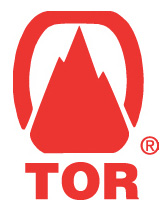On April 25, 2012, Tor Books UK announced that it was making all of its ebook list DRM-free. There’s still a lot of debate and interest in the topic. I recently wrote a piece about the subject for Publishers Weekly which I’ve replicated here.
We made this decision in conjunction with our sister company in the US, for our shared brand imprint. It was something that we’d been exploring for quite a while and a move that we felt committed to for our particular area.
For those who don’t know what DRM is, it’s a copy protection or access control to digital content that’s applied to ebooks. Many publishers and retailers use it and it’s a complex and controversial issue for copyright holders and consumers with passionate arguments for and against.
For our particular readership, we felt it was an essential and fair move. The genre community is close-knit, with a huge on-line presence, and with publishers, authors and fans having closer communication than perhaps some other areas of publishing do. Having been in direct contact with our readers, we were aware of how frustrated many of them were by DRM. Our authors had also expressed concerns at the restrictions imposed by the copyright coding applied to their ebooks. When both authors and readers are talking from the same page, it makes sense for the publishers to sit up, listen and take note—and we did!
We know, that our readers are earlier adapters of technology, the first in-line to experiment with new formats, new reading experiences and new devices. In part it’s the nature of the genre—a pushing of boundaries and imagination and it’s what we all love about the area. For us, we felt a strong sense that the reading experience for this tech-savvy, multi-device owning readership, was being inhibited by DRM leaving our readers unable to reasonably and legally transfer ebook files between all the devices they had. DRM was an irritant taking away the flexibility and their choice of reading device and format, the very things that made the ebook so desirable a format to begin with.
We had discussions with our authors before we made the move and we considered very carefully the two key concerns for any publisher when stripping out the DRM from ebooks: copyright protection and territoriality of sales. Protecting our author’s intellectual copyright will always be of a key concern to us and we have very stringent anti-piracy controls in place. But DRM-protected titles are still subject to piracy, and we believe a great majority of readers are just as against piracy as publishers are, understanding that piracy impacts on an author’s ability to earn an income from their creative work. As it is, we’ve seen no discernible increase in piracy on any of our titles, despite them being DRM-free for nearly a year.
All of our authors including bestsellers such as Peter F. Hamilton and China Miéville were incredibly supportive when we asked them to consider removing DRM from their titles. All of them signing up without hesitation to a scheme which would allow their readers greater freedom with their novels.
When we made the announcement there was an immediate reaction from the media. The Guardian explained how ‘Tor rips up the rulebook on digital rights management’ and the BBC featured a long article with arguments from both sides, drawing links with the music industry’s experience of the transition and highlighting that “the key difference with the music business is that the book trade can see what mistakes the record labels made and avoid them.”
But the most heartening reaction for us was from the readers and authors who were thrilled that we’d listened and actually done something about a key issue that was so close to their hearts. They almost broke Twitter and facebook with their enthusiastic responses. Gary Gibson, author of The Thousand Emperors tweeted: “Best news I’ve heard all day.” Jay Kristoff, author of Stormdancer, called it “a visionary and dramatic step . . . a victory for consumers, and a red-letter day in the history of publishing.”
China Miéville called the decision “a game changer” and long-time anti-DRM author and blogger Cory Doctorow praised the decision on both the Guardian Technology Blog andboing boing, the blog he co-edits: “I think that this might be the watershed for ebook DRM, the turning point that marks the moment at which all ebooks end up DRM-free. It’s a good day.”
And Charles Stross, author of the Merchant Princes series, recently said “I’m happy to see that Tor have gone DRM-free with their ebook editions. DRM doesn’t impede pirates, but it subjects honest customers to a monopoly tightly controlled by the owners of the DRM software, reducing readers’ freedom and hampering competition.”
We had readers contact us directly explaining how “DRM is anti-customer” and how pleased they were by this “forward thinking step.”
The move has been a hugely positive one for us, it’s helped establish Tor and Tor UK as an imprint that listens to its readers and authors when they approach us with a mutual concern—and for that we’ve gained an amazing amount of support and loyalty from the community. And a year on we’re still pleased that we took this step with the imprint and continue to publish all of Tor UK’s titles DRM-free.
Julie Crisp is the Editorial Director at Tor UK.
This post originally appeared on the Tor Books UK blog.










